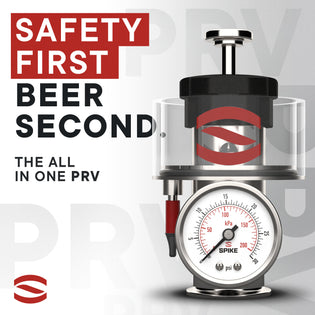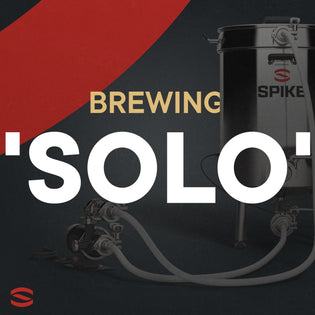Hello everyone! My name is Erik Sauve, the Vice President at Sauve and Son Farms. Our farm is located in the Yakima Valley in Washington State, in the small town of Mabton. My family has been farming hops since 1938. We currently grow 10 different hop varieties both proprietary and public: Simcoe, Cascade, Amarillo, Citra, Mosaic, Columbus, Warrior, Ekuanot, HBC 682, and Idaho 7.

Growing up around the farm, I knew at an early age that this was what I wanted to do for the rest of my life. I then received my education at Washington State University, graduating with an Agricultural Degree.
We just fired up our harvest season almost two weeks ago, and I hope to pass on some knowledge of this exciting time of year for us and just how sought-after Fresh Hops are by brewers local to Washington and across the country.
Let’s start with the basics…

What are Fresh Hops?
Fresh hops are considered to be “wet hops” that have just been picked from the field, and have gone through the picking machine process, but have not yet been kiln dried to the lower moisture content of 9-10%.
Where Do You Get Fresh Hops?
Fresh hops can be received from any hop farm currently in harvest.

Hop Varieties
Fresh hops can be any hop variety grown. However, mostly aroma hops are requested rather than alpha hops that tend to pack more bitterness.
Key Differences Between Fresh Hops, Wet Hops, and Dry Hops
There is continued debate on what Fresh Hops really are. Some argue that fresh hops are wet hops that have not been kiln dried, while others believe both wet hops and recently kiln dried hops are both considered to be “fresh”.
- Wet hops are hops that have been picked straight from the field but not yet dried.
- Fresh hops can be both wet hops or recently kiln dried hops.
- Dry hops are hops that have been kiln dried to the lower moisture content of 9-10%.
How to Use Fresh Hops
Using fresh hops requires roughly 3x the amount of hops that you would use when using pellets. That is because the fresh hops are not concentrated to pellets and also have a lot of green material that can absorb wort.
Fresh hops are usually used post boil in a whirlpool like stage. Extracting the oils and lupulin from the wet hops before knocking out into the fermenter.
How to Harvest Fresh Hops
Fresh hops are harvested mechanically in the field by a top cutter that cuts the top of the vine into the back of the hop trucks. Hop bines are then transported to the picking machine where the truck is unloaded and the bines are moved through the picking machine to separate the cones from the leaves and stem. Leaves and stems are separated and sent out to a large “trash” pile to breakdown into compost, while the hop cones are sent into the kiln facility to be dried.

How to Store Fresh Hops
Fresh hops are not stored for very long as the cones can begin to degrade quickly. Usually fresh hops are picked up from our farm and driven straight to the brewery to be used within minutes or a few short hours of being picked in the field. That is where the appreciation of fresh hop beers comes from.
Hops and Beer Styles
Fresh hop beer styles can range from IPAs, Pale Ales, Pilsners to whatever a brewer is wanting to try out.
Fresh hop IPAs are definitely the most popular in Washington State.

How is Fresh Hop Farming Changing the Beer Industry?
I think fresh hops are changing the beer industry in a few different ways, but more so on creating friendships and relationships with brewers. Fresh hop orders usually mean that the brewer themselves, or members of the staff will drive out to our farm to pick them up.

If time persists, we like to tour them around our facilities and show them the process it takes to supply them with the hops. This allows our connection with the beer industry to be more understood and appreciated. Likewise on our part, I love to see the dedication brewers have to making quality beer and am always grateful to fill orders when asked.
I usually try to make it out to breweries that come by our farm during harvest to show our gratitude for making the trip, as well as try some delicious beers they have made.

Erik Sauve is the Vice President at Sauve and Son Farms. Their farm is located in the Yakima Valley in Washington State, in the small town of Mabton. His family has been farming hops since 1938, and they currently grow 10 different hop varieties both proprietary and public.





